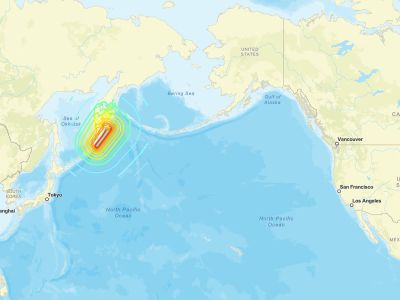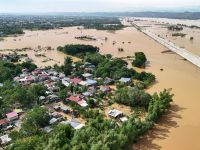US Secretary of State Colin Powell said Thursday that speculation in the world media that the United States was preparing for an imminent attack on Iraq was unfounded.
"This suggestion out of the media right now that something is on the verge of happening has no particular underpinning substance to it," Powell said in an interview with a small group of reporters at the State Department, as quoted by AFP.
"I think it is highly inappropriate and speculative and hypothetical of me to talk about a war that nobody has declared," he said.
Speculation that a US attack on Iraq is being planned has run rampant among commentators and analysts in the US and foreign media since Monday when President George W. Bush appeared to hint that Washington was planning to expand its anti-terrorism war to oust Iraqi President Saddam Hussein.
That speculation has sparked deep concerns in the Arab World and among US allies in Europe where many officials have spoken out against such a move.
The Arab League and EU countries warned Wednesday against a US attack on Iraq, seen by diplomats as “certain.” And British Prime Minister Tony Blair said Wednesday he fully agreed with Bush's latest warnings to Iraq over its suspected efforts to develop weapons of mass destruction, but cautioned against any hasty response to the problem.
Bush warned the Iraqi president on Monday to allow UN weapons inspectors back into the country “to prove to the world he's not developing weapons of mass destruction.”
Asked what would happen if Saddam refused, Bush replied: “He'll find out.”
According to AP, Jordan and the Arab League appealed to the United States not to attack Iraq, saying Wednesday that such a strike would have dangerous consequences.
Jordan “rejects the use of force, external interference in Iraq's affairs and meddling with its integrity,” Saleh Qallab, a government spokesman and a minister of state, was quoted as saying.
In Cairo, the secretary general of the Arab League, Amr Moussa, reiterated that any attack on an Arab country would have “dangerous repercussions” and would affect the political climate in the region.
“Arab public opinion is completely outraged because of what is happening in the occupied territories, “ Moussa said, referring to the 14 months of Palestinian rebellion against 34 years of Israeli military occupation.
German Chancellor Gerhard Schroeder also warned against taking the war on terrorism to countries beyond Afghanistan.
And in Sofia, Bulgaria, French Defense Minister Alain Richard said he saw no reason for the international military campaign against terrorism to move beyond Afghanistan for the time being.
Richard said France would back military action if there were compelling evidence that a nation was supporting Al Qaeda, Osama bin Laden's terrorist organization. Bin Laden is the prime suspect in the Sept. 11 terror attacks.
But Western diplomats familiar with US policies told AFP Wednesday that the United States would certainly carry out an attack on Iraq but "the question is when.”
According to these diplomats the anti-terrorist campaign spearheaded by the United States following the September 11 strikes on New York and Washington "will certainly lead to strikes on Iraq.”
A military campaign against Iraq will be essentially aimed at "breaking the regime of Saddam Hussein and destroying his armament," one diplomat said.
Powell, who met earlier Thursday with Egyptian Foreign Minister Ahmed Maher, said the United States was keenly aware of the concerns being expressed, especially in the Middle East.
"I don't know what people think is about to happen," he said in the interview. "We are in constant touch with our friends in the region.
"I don't want to go so far as to say that we have to get permission from anybody to take action (against Iraq), that's not the case, but we recognize that we have close friends in the region, who have equities in the region and we will be in close consultation with them."
Speaking to reporters after his meeting with Powell, Maher said Egypt was satisfied that the United States understood the concerns about expanding the war on terrorism to Iraq.
"Among friends we had frank discussions about this matter and the secretary said that some friends and allies of the United States are advising caution. I think we have been heard," Maher told reporters.
Powell, standing next to Maher, said the United States and Egypt had a common position on Iraq but acknowledged that some US allies were extremely nervous about the possibility that Washington might target Baghdad next after Afghanistan.
"We understand the cautions that some of our friends have given us with respect to possible future actions and we will stay in close touch and have consultations with our friends," Powell said.
But, he noted that many of the countries expressing concern, including Egypt, shared with the United States the belief that UN Security Council resolutions requiring Iraq to give up its weapons of mass destruction program had to be enforced.
"Both of us (the United States and Egypt) have a common understanding of the nature of that regime and what a danger that regime presents to the region and to the world," Powell said. "We all want to keep Iraq contained." – Albawaba.com
© 2001 Al Bawaba (www.albawaba.com)









